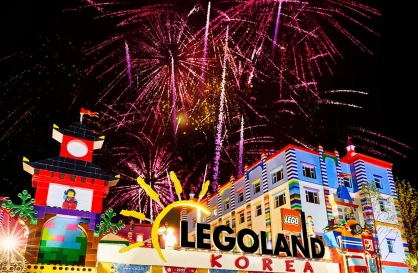신고리 1·2·3·4호기와 신월성 1·2호기 원자로에 시험성적표가 위조된 부품이 사용된 사실이 드러나 가동·재가동 일정 연기가 불가피해졌다.
이에 따라 문제의 부품이 공급된 원자로의 가동 혹은 재가동이 약 6개월 늦어지게 돼 전력 수요가 늘어나는 여름철을 앞두고 전력 수급에 비상이 걸렸다.
이은철 원자력안전위원장과 박윤원 한국원자력안전기술원장은 28일 서울 종로구 원자력안전위원회 대회의실에서 대언론 브리핑을 열어 이렇게 밝혔다.
이번 사건으로 신고리2호기와 신월성1호기의 가동이 예정보다 이르게 중단됨에따라, 전국 원전 23기 중 신고리 1호기, 고리 1·2호기, 한빛(옛 영광) 3호기, 월성 1·2호기, 한울(옛 울진) 4·5호기를 포함해 10기가 운전 중단 상태가 됐다. 설비용량으로 따지면 원전 2천71만6㎾ 중 771만6천㎾를 가동할 수 없는 상황이다.
박근혜 대통령은 이날 국무회의에서 이번 사건에 관한 보고를 받고 "확실한 원인을 규명하고 책임소재를 분명히 해야하며, 조금이라도 문제가 있다면 투명하게 밝힐 뿐 아니라 거기에 맞는 조치를 취함으로써 다시는 그런 일이 없도록 최선을 다해 달라"고 지시했다.
원안위는 시험성적서가 위조된 제어케이블이 이들 6개 원자로에 설치된 사실을 확인했다. 제어케이블은 원전 사고 발생시 원자로의 냉각 등 안전계통에 동작 신호를 보내는 안전 설비다. 사용된 케이블의 분량은 원자로당 약 5km다.
원안위는 지금까지 조사를 통해 신고리 1·2호기와 신월성 1·2호기에 들어간 부품의 시험 그래프와 시험 결과가 위조된 사실을 확인했다. 또 현재 건설중인 신고리 3·4호기에 대해서는 시험 그래프 등 시험성적표의 일부가 위조된 부품이 사용된 사실을 확인했다.
원안위는 이에 따라 가동 중이었던 신고리 2호기와 신월성 1호기의 가동을 정지토록 했다. 당초 신고리 2호기는 이달 31일∼7월 25일, 신월성 1호기는 다음달 12일∼8월 6일 계획예방정비를 받을 예정이었으나, 이번 사건으로 가동 정지 시점이 앞당겨졌으며 재가동 시점은 약 6개월 늦춰질 것으로 예상된다.
원안위는 또 지난달 8일부터 계획예방정비중이던 신고리 1호기의 정비기간을 연장해 불량 부품을 교체토록 했다. 또 현재 운영허가 심사단계인 신월성 2호기는 운영허가 전까지 제어케이블을 교체토록 했다.
아울러 현재 건설중인 신고리 3·4기에 대해서는 추가 조사와 안전성 평가를 실시하고, 그 결과에 따라 적절한 조치를 취할 계획이다.
원안위는 신고리 1·2호기와 신월성 1호기의 제어케이블을 교체한 후에도 새로 설치된 제어케이블의 성능 검사 결과를 고려하고 지방자치단체와 협의해 지역 주민과 민간 전문가들이 참여하는 검토 과정을 거쳐 재가동 여부를 결정할 방침이다.
이은철 위원장은 케이블 교체와 안전성 점검 등 조치에 약 6개월이 소요될 것이라고 내다봤다.
원안위는 문제가 된 제어케이블의 원본 시험성적서를 분석한 결과, 문제의 부품이 해외 시험기관의 검증 결과 시험에 실패했는데도 검사를 담당한 국내 시험기관의 직원이 이를 위조했음을 밝혀냈다고 밝혔다.
국내 시험기관이 제어케이블 시험의 일부를 해외 시험기관에 의뢰했는데 그 시험성적표를 받은 국내 시험기관의 직원이 이를 조작했다는 것이다.
원안위는 건설중인 신고리 3·4호기에 들어간 부품의 서류가 위조됐다는 제보를 '원자력안전신문고'에 4월 말 받았고, 이에 따라 조사를 확대하는 한편 캐나다의 시험기관에 연락해 시험성적표 원본을 이달 20일 확보하고 위조 사실을 22일 확인했다. (연합뉴스)
<관련 영문 기사>
Commission halts operation of two nuclear reactors due to fake parts
The nuclear safety commission halted the operation of two nuclear reactors Tuesday, while also suspending the scheduled operation of two other reactors for substandard parts used in the reactors.
Neither the shutdown of the reactors nor the substandard parts used in them posed immediate threats to public safety, according to the Nuclear Safety and Security Commission.
The commission said it has shut down two reactors -- the Shin Kori Reactor 2 and Shin Wolsong Reactor 1 -- after learning that substandard parts supplied under fake quality warranties had been used in building them.
The commission has also suspended the scheduled resumption of operation of the Shin Kori Reactor 1, which had been undergoing regular maintenance.
In addition, the new Shin Wolsong Reactor 2, which is currently under a review for the start of its commercial operation, will not be allowed to begin operation until all substandard parts have been replaced, it said.
There was no danger of a radiation leak, but the shutdown of two nuclear reactors that are currently in operation posed a serious problem for the supply of electricity, especially ahead of the summer season when electricity consumption usually surges to an annual high.
The country currently operates 23 reactors, supplying about 30 percent of its total electricity consumption. Shutting down two nuclear reactors that are currently generating electricity meant a significant drop in the country's power reserve levels.
The shutdown of the reactors follows a corruption scandal that erupted late last year, involving more than 13,000 substandard parts supplied under fake quality warranties for over 10 years.
The commission had shut down two reactors at the Yeonggwang Nuclear Power Plant, located 330 kilometers south of Seoul, saying nearly 99 percent of all substandard parts had been used in the two Yeonggwang reactors.
The commission did not specify whether the two incidents were related, saying only control cables with fake warranties had been used in the two reactors at the Wolsong Nuclear Power Plant, located some 400 kilometers southeast of Seoul, and the two reactors at the Kori Nuclear Power Plant, located about 450 kilometers from the capital and near Busan. (Yonhap News)
- NewJeans pops out ‘Bubble Gum’ video amid troubles at agency
- Zico hits the right 'Spot!'
- More eateries went out of business in 2023 than pandemic years
- 2.2 magnitude quake hits near southern county of Hapcheon
- Doctor group's incoming head renews call for govt. to scrap medical school quota hike for dialogue
- [Photo News] OLED train windows
- Hamas reviews Israeli proposal for a cease-fire in Gaza, as a planned Rafah offensive looms
- New head of doctors' association vows war in case of disadvantage to medical professors
- S. Korean stock markets' trading volume down 11% in April
- New celebrity-endorsed therapy for face contouring requires only a pair of rubber bands


















